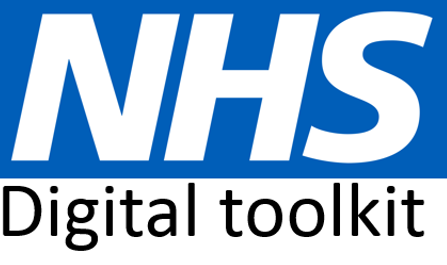The Rise Of Weight Loss Drugs And The Fall Of WeightWatchers

Table of Contents
The Explosive Growth of the Weight Loss Drug Market
Increased FDA Approvals and Market Saturation
The recent approval of several new weight loss medications has dramatically reshaped the market. These drugs, often GLP-1 receptor agonists, work by mimicking a natural hormone that regulates appetite and metabolism.
- Semaglutide (Wegovy, Ozempic): Approved for chronic weight management in adults with obesity or overweight with at least one weight-related condition. Works by suppressing appetite and slowing gastric emptying.
- Tirzepatide (Mounjaro): Approved for type 2 diabetes, also showing significant weight loss effects. Acts on both GLP-1 and GIP receptors.
- Liraglutide (Saxenda): Another GLP-1 receptor agonist approved for chronic weight management.
This surge in FDA approvals, coupled with extensive marketing and celebrity endorsements, has led to unprecedented demand. Market analysts predict continued exponential growth in the coming years, creating a highly competitive environment.
Accessibility and Affordability (or Lack Thereof)
While the efficacy of these weight loss drugs is undeniable, accessibility remains a significant barrier. The high cost of these medications, often exceeding $1000 per month, places them out of reach for many.
- Insurance Coverage: While some insurance plans cover these medications, coverage varies widely, leaving many individuals to shoulder the full expense.
- Socioeconomic Disparities: The price differential creates a significant disparity in access, potentially exacerbating existing health inequalities.
- Side Effects: While generally well-tolerated, these medications can cause side effects like nausea, vomiting, constipation, and diarrhea. Long-term effects are still being studied.
- Affordable Alternatives: For those who cannot afford prescription weight loss drugs, more affordable options, like lifestyle changes through diet and exercise, remain crucial, but are far less lucrative to companies.
The Challenges Faced by WeightWatchers and Similar Programs
Shifting Market Dynamics and Competition
The rise of weight loss drugs has directly impacted the market share of traditional weight loss programs like WeightWatchers. Membership numbers have shown a decline in some regions coinciding with the increased availability of these medications.
- Decreased Membership: WeightWatchers has reported decreased membership in certain markets directly attributed to competition from weight loss medications.
- Competitive Strategies: Competitors are adapting their offerings, some even integrating elements of pharmaceutical interventions into their weight-loss programs.
- Target Audience: Weight loss drugs attract a different demographic, those seeking a potentially quicker, more impactful solution, whilst traditional programs like WeightWatchers emphasize long-term lifestyle changes.
Adapting to the New Landscape: WeightWatchers' Response
WeightWatchers, aware of the shifting landscape, has begun adapting its strategies.
- New Programs: The company has launched new programs incorporating elements of personalized nutrition and behavioral health coaching.
- Digital Platforms: Investment in digital platforms provides more convenient and accessible tools for members.
- Integration (potential): There is a growing interest from these companies to explore opportunities to integrate their approach with appropriate pharmaceutical intervention.
- Strengths and Weaknesses: WeightWatchers' strength lies in its community support and comprehensive approach. However, the speed of results offered by weight loss drugs presents a significant competitive challenge.
The Future of Weight Loss: Drugs vs. Lifestyle Changes
The Synergy of Medication and Lifestyle Modification
The most promising approach may involve a combination of weight loss medication and lifestyle interventions.
- Holistic Approach: Integrating weight loss medication with programs like WeightWatchers could maximize weight loss and improve long-term maintenance.
- Clinical Studies: Emerging research suggests that combining medication with lifestyle changes can lead to greater and more sustained weight loss.
- Sustainable Weight Management: Lifestyle modifications, such as those emphasized by WeightWatchers, are critical for sustainable weight loss, even with medication.
Ethical Considerations and Potential Concerns
The rapid growth of the weight loss drug market raises several ethical concerns.
- Misuse and Abuse: The potential for misuse or abuse of these medications is a serious concern.
- Responsible Prescribing: Careful patient selection and monitoring are crucial to minimize risks and ensure safe use.
- Marketing Practices: Ethical considerations surround marketing these drugs, especially in regards to claims and expectations.
Conclusion
The rise of "weight loss drugs" has undeniably impacted the weight loss industry, presenting significant challenges to traditional programs like WeightWatchers. While these medications offer a potentially faster route to weight loss, they are not a standalone solution. The future of weight loss likely involves a nuanced approach that incorporates both effective medication and sustained lifestyle changes, similar to those offered by programs like WeightWatchers. Consider exploring both "weight loss drugs" and comprehensive lifestyle programs to find the most suitable approach for your individual weight loss journey. Research the benefits and risks of both before making a decision.

Featured Posts
-
 Dijon Violente Agression Au Lac Kir Trois Hommes Blesses
May 09, 2025
Dijon Violente Agression Au Lac Kir Trois Hommes Blesses
May 09, 2025 -
 Jeanine Pirros Controversial Appointment The Impact Of Past Allegations
May 09, 2025
Jeanine Pirros Controversial Appointment The Impact Of Past Allegations
May 09, 2025 -
 Illegal Access Of Patient Data Nottingham Stabbing Case Highlights Nhs Security Concerns
May 09, 2025
Illegal Access Of Patient Data Nottingham Stabbing Case Highlights Nhs Security Concerns
May 09, 2025 -
 How Federal Riding Redistributions Could Impact Edmonton Voters
May 09, 2025
How Federal Riding Redistributions Could Impact Edmonton Voters
May 09, 2025 -
 Boxeur De Dijon Accuse De Violences Conjugales Audience En Aout
May 09, 2025
Boxeur De Dijon Accuse De Violences Conjugales Audience En Aout
May 09, 2025
